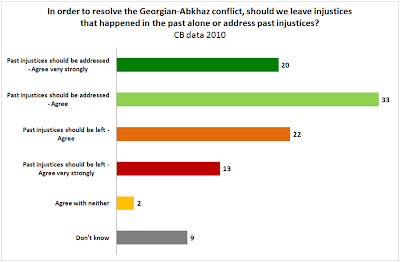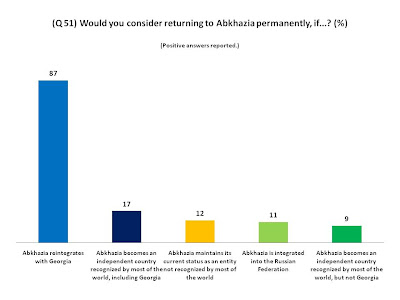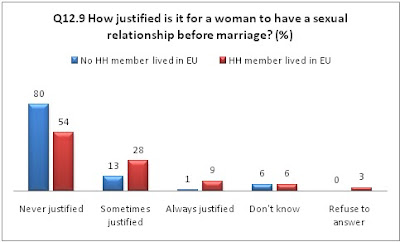According to a poll CRRC conducted for the National Democratic Institute (NDI), 38% of the Georgian population says roads is the most important local issue for them. Sewage, streetlights and trash collection are other issues that the population finds important.…
Blog
Here you can find blogs written by researchers at CRRC Georgia that analyse trends in the region and are mainly based on the survey data conducted by CRRC Georgia. These articles first appear on OC Media’s Caucasus Data Blog as part of the collaboration between CRRC Georgia and OC Media.

By Sonya Kleshik
One of the previous CRRC blogs discussed some results from CRRC’s recent survey called “IDPs in Georgia” which gauged the opinions and attitudes of IDPs displaced from Abkhazia during the 1992-1993 conflict towards return, conflict resolution…
How do multimedia phones affect the way media is consumed and circulated? Katy Pearce lays out interesting findings for the case of Armenia in the International Journal of Communication (5, 2011, pp. 511-528).

Under which conditions would IDPs be willing to return to Abkhazia? Should past injustices be addressed or left alone? What do IDPs consider the main reasons for the outbreak of the war in the early 1990s? The research project “IDPs…
Georgians are in a state ‘EUphoria’. That is one of the claims made by academic Martin Muller in his article entitled “Public Opinion Toward the European Union in Georgia” in the latest edition of Post-Soviet Affairs (2011 27,1 pp. 64-92).…

In 2009, Counterpart International Armenia was given the rights by CIVICUS to use their methodology to conduct a public opinion survey and measure the Civil Society Index (CSI) in the Republic of Armenia. On February 22nd, Counterpart International Armenia presented the respective…
Q: In the last posting you said that in order for the sample to be representative of the entire population, every member of the population had to have some chance of being selected for the sample. However, you didn’t say…

The internal workings of the European Union (EU) are notoriously yawnsome matters. However, in a survey from 2008, CRRC aimed to give an overview of Georgians’ understanding of and attitudes to the EU – including some hot topics concerning orientations…
Dr. John Schoeberlein, Project Director on Islam in Eurasia at Harvard University, gave a lecture at the Free University in Tbilisi on February 15th on the usefulness of a liberal education, specifically anthropology, for life, society, and the individual. He…
